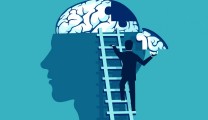1. Concept of consumer behavior
Consumer Behavior is the actions, decisions, and thoughts of customers when searching for, choosing, or using a service. In other words, consumer behavior is the process by which customers make decisions to buy or not to buy, choose a suitable product or brand, search for product information, compare prices and quality, evaluate and evaluate satisfaction after purchase, and decide whether to continue consuming or not.
Consumer behavior is also the way customers shop. Some of the factors that can be mentioned are:
- Consumer shopping frequency
- Shopping trends
- Consumers' perceptions of advertising, sales and services provided by a business
An example of consumer buying behavior when purchasing moisturizer studied by analysts:
- Why women buy moisturizer: Improve skin problems
- Most favorite cosmetic brands: Olay, Obagi, L'oreal,...
- Number of times to apply cream per day: 1-2 times in the early morning or evening
- Favorite place to buy products: Supermarket, buy online, buy directly at the store,...
- Number of purchases: Weekly, monthly, every 2 months,...
 Consumer behavior influences product purchase decisions
Consumer behavior influences product purchase decisionsConsumer behavior has a direct impact on whether customers decide to buy or not to buy a product. Therefore, research helps businesses identify and predict the shopping trends of each buyer segment, helping to classify specific customers and easily build appropriate and effective marketing strategies. In addition, analyzing consumer buying behavior also helps:
- Help businesses understand customers' needs, preferences, and shopping behaviors, thereby predicting market trends and building effective marketing strategies.
- Segment customers, personalize experiences, and deliver messages tailored to each customer group
- Understanding consumer behavior helps businesses develop products that suit tastes, minimizing the risk of failure.
- Stay ahead of market trends and gain competitive advantage.
- Improve and enhance product strengths based on user behavior
2. Factors affecting consumer behavior
Nowadays, there are countless factors that influence consumer purchasing behavior, some typical factors include:
| Society | Mentality | Personality | Other factors |
| Family | Religion, belief | Personal preference | Brand loyalty |
| Friend | Motivation | Personal views | Price sensitivity |
| Celebrity | View | Age | Review/ evaluation |
| Educational background | Attitude | Sex | Word of mouth from people around |
| Social status | Culture | ||
| Income | Living conditions |
3.1 Culture
Culture is considered the most fundamental factor determining customers' shopping behavior. Therefore, marketers need to pay attention to these factors when building strategies, advertising messages, choosing product designs and colors, and training employees' working styles. For
example, culture affects consumer behavior , such as Vietnamese customers will be influenced by cultural factors of national identity when making decisions about choosing values. Meanwhile, Japanese consumers here set high standards for product quality, durability, reliability, and convenience.
Specific culture:
Each culture often contains its own cultures with different levels of integration. These specific cultures include: Ethnicity, race, religion, belief, geography.
Social class:
Social classes are relatively stable and homogeneous groups in a society. Social classes are arranged in a certain order. Members of these groups share similar values, interests, and behaviors.
Social classes are not only arranged based on one factor such as income but also a combination of occupation, education, assets and other factors. Therefore, businesses should research social classes because members of the same class will have the same way of thinking and behaving.
Cultural norms
Cultural norms are basic rules of society such as morality, reason, etc. to create standards in behavior and attitudes of people in society. Examples of cultural norms for consumer buying behavior are the tradition of respecting teachers, drinking water and remembering the tree planter and November 20. Understanding this norm, brands and businesses can plan communication and product promotion to suit November 20.
3.2 Personal personality
Year old
Each age group has different shopping habits and needs. Usually, users tend to change the products and services they want to buy according to each stage of their life.
An example of consumer tastes changing according to age: As a child, consumers will like to eat sweet, fatty and colorful foods because they are attracted by eye-catching colors. As adults, they have had many experiences and exposure to many different culinary cultures, so they tend to eat more diversely than children. And when they get older, they will diet or choose easily digestible foods to protect their health.
That is also the reason why marketing experts choose target customers based on life cycles and circumstances.
Job
Each job will also have different shopping needs and consumer behavior. Usually, occupation will affect consumer shopping needs. For example: Workers will buy durable, comfortable clothes and shoes to facilitate their work... Therefore, marketing experts need to identify the occupational groups that have the most interest in their products and services.
Style of life:
Even though customers are of the same class, age, and culture, they will still have different lifestyles. Therefore, their shopping needs will also be different.
In general, a person's lifestyle will be expressed through his or her activities, interests and views in life. Although consumers belong to the same cultural group, social class, occupation, their lifestyle will be different.
Economic status:
Economic circumstances will have a huge impact on consumer behavior and product choice decisions. These circumstances can include: Income, savings, assets, etc. In addition, for assets that are sensitive to income, businesses should regularly pay attention to changes in personal income, interest rates, and savings.
 Personal personality
Personal personality3.3 Society
Family:
An individual can receive orientation in personality, politics, economics, love… from his parents. Even individuals who do not have much contact with their parents will still be significantly influenced by them. In families where individuals live with their parents, their decisions will be greatly influenced by their parents.
For expensive products/services, the decision will be made by a couple. In this case, marketers need to determine who has the most influence on the purchase of that product/service.
Role and status in society:
Each role is associated with a certain status in society. Therefore, users often choose products that reflect their status in society. Marketing experts need to determine which status their products/services are suitable for in order to develop appropriate advertising campaigns. However, social status will vary depending on class and geographic region.
3.4 Psychology
Engine:
Normally, each person will have different needs depending on the period of life. Some of these needs will be instinctive, originating from the mental state of fatigue, stress, hunger, etc. of the person. Others will originate from psychological states such as: the need to be recognized, respected, admired, etc. All of these needs can only become motivations when they reach a strong enough level.
Motivation or drive will put pressure on a person to find a way to satisfy that need, reduce stress. Psychologists have discovered many theories about human motivation such as: A. Ma Slow, F. Herzberg.
A specific example of psychological factors, motivation affecting consumer behavior is if a person has a need to be recognized and appreciated, they may tend to buy more expensive products to show status and to be recognized by others of the same social class.
Awareness:
Perception belongs to the group of psychological factors that influence consumer behavior. According to experts B. Berelon and G. Steiner, perception is understood as the process by which individuals select, organize and interpret the information received to form a meaningful picture of the world.
Perception is not only determined by the characteristics of each individual and the impact of influencing factors, but also depends on the correlation between those factors and the surrounding circumstances and the characteristics of each individual.
- Perception will be divided into 3 processes:
- Selective attention process
- Selective distortion of information
- Selective memory
Knowledge:
According to experts, a person will gain knowledge through the interaction of motives, agents, situations, responses and reinforcement. The urge is a factor that affects internal stimulation, promoting actions. For example: When a person has the urge to be proactive about transportation, he will turn to the motive to relieve that urge, specifically a motorbike or a car.
Beliefs and opinions:
Belief is a belief that a person will achieve something. This belief can be based on knowledge, trust, and can be influenced or not by emotional factors. Marketing experts need to pay attention and analyze carefully about consumer trust in the products/services they provide.












Replies to This Discussion